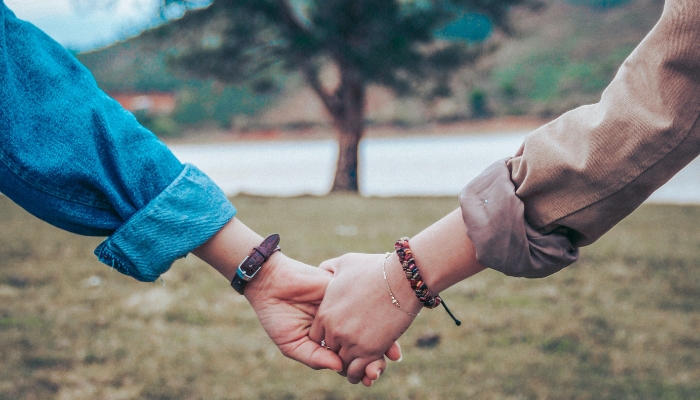
You’re swiping right, but are you really winning? Dating apps may offer convenience, but what about dating apps disadvantages?
Dating apps disadvantages often include less personal interaction, the risk of false representation, potential online predators, mental health impacts, and a paradox of choice and more.
Let’s dive into these dating apps disadvantages, backed by evidence, and see what’s really behind that attractive profile picture.
Table of contents
Reduced Personal Interactions
One major downside you’ll notice when using dating apps is the significant reduction in personal interactions. The realm of online dating has its allure, no doubt. It’s convenient, fast-paced, and offers a vast pool of potential partners. But it also has its pitfalls, one of them being the lack of physical interaction.
When you’re involved in online relationships, what you’re missing out on is more than just the warm touch or a comforting hug. Physical interaction also entails reading body language, witnessing a person’s reactions first-hand, and sharing experiences in real-time. All these elements contribute to emotional intimacy, which is integral in forming deeper, meaningful bonds.
Research underscores this point. Studies have shown that the lack of physical presence in online dating often leads to miscommunication and negative interactions. The absence of non-verbal cues can make it difficult to interpret a person’s intentions, leading to misunderstandings and conflicts.
While dating apps provide a platform to connect with others, they can’t replicate the richness of face-to-face interactions. In the quest for love and connection, it’s important not to overlook the value of personal, tangible interactions. Remember, emotional intimacy isn’t just about words; it’s also about shared experiences and physical presence.
False Representation Dilemma

Another pitfall you might encounter in your online dating journey is the false representation dilemma. This problem arises from the proliferation of fake profiles on online dating sites. These profiles may be created by people misrepresenting themselves, often using misleading pictures or embellishing their interests and achievements.
Studies suggest that over 10% of all online dating profiles are fake, leading to disillusionment and trust issues among users. This false representation dilemma significantly impacts the authenticity of potential partners you engage with, distorting your perception of who they legitimately are. You might find yourself connecting with someone who appears to be your ideal match, only to discover they’re far from it.
This situation is tricky because it’s challenging to identify these profiles upfront. Online dating sites have implemented various security measures to combat this issue, but no system is foolproof. Consequently, you must maintain a discerning eye and healthy skepticism when navigating these platforms.
In the end, the false representation dilemma is a significant setback in the online dating world. It undermines trust, hampers genuine connections, and potentially leads to emotional distress. Awareness of this issue can help you navigate online dating more safely and effectively.
Dangers of Online Predators
Moving on from the false representation dilemma, a critical aspect of dating apps danger is the serious threat of online predators while using these platforms. These individuals, often hiding behind fake accounts, use the anonymity of an online profile to exploit their victims. They’re one of the key dangers of online predators that users need to be wary of.
Various studies have indicated an increase in cases where users of online dating apps were victimized by predators. This poses a significant risk to your personal safety. It’s not uncommon for these perpetrators to manipulate, engage in identity theft, or even resort to blackmail.
For instance, in 2019, the FBI reported over 18,000 victims of romance or confidence fraud in the U.S. alone. That’s a jarring statistic that should make you pause before clicking ‘like’ on that seemingly appealing profile.
Defending yourself against such threats involves being vigilant about sharing personal information and being skeptical of too-good-to-be-true personas. Remember, your personal safety precedes everything else when using an online dating app.
Understanding the dangers of online predators is crucial to navigate this digital landscape safely.
Impact on Mental Health

Beyond the risk of encountering online predators, you’re also likely to face significant mental health implications when using dating apps. Research consistently links the online dating experience to negative effects on mental health. You might think that these platforms are just tools to connect with potential partners, but they’re also breeding grounds for negative experiences that can affect your well-being.
Dating apps can contribute to feelings of anxiety and depression. The constant swiping, the pressure to present yourself in the best light, the fear of rejection – all these can take a toll on your mental health. One study found that users of dating apps report lower self-esteem and more body dissatisfaction compared to non-users.
Furthermore, the transient nature of relationships formed on dating apps can lead to a sense of instability and insecurity. The cycle of matching, chatting, and perhaps being ghosted can leave you feeling emotionally drained and disappointed.
The Paradox of Choice
While you might relish the extensive range of potential matches on dating apps, this abundance can ironically make it harder for you to make a decision. This phenomenon, known as the ‘paradox of choice’, suggests that when presented with a multitude of options, you’re likely to feel more overwhelmed than empowered.
Psychologists argue that the paradox of choice can lead to anxiety and regret. You might find yourself second-guessing your choices, constantly wondering if there’s a better match just a swipe away.
Here’s how the paradox of choice manifests itself on popular dating apps:
- You’re constantly swiping, unable to settle on a potential suitor because of the sheer number of dating profiles, which is why some people turn to niche platforms like sober dating apps for a more curated experience.
- You find it hard to commit to a conversation, always seeking someone who might be ‘better’.
- You may feel dissatisfied even after choosing a match, wondering if you’ve made the right choice.
- The potential matches seem endless, feeding into a cycle of indecisiveness and regret.
The Financial Aspect of Online Dating

Cost Implications of Frequent Dates
In the world of dating services, the quest for a romantic partner often leads to frequent outings. While the excitement of meeting potential dates is undeniable, the financial burden can be surprisingly hefty.
Regular users of platforms like Tinder and Bumble find themselves spending vast amounts on meals, movie tickets, and other activities. This spending pattern is not just limited to traditional dating but extends to virtual dating apps as well, where arranging actual dates becomes a regular occurrence.
For many, especially those in the adult population, managing these expenses becomes a part of daily life. American adults, in particular, often face the challenge of balancing the desire for a meaningful connection with the realities of their budget.
The online dating statistics reveal that individuals may spend hundreds, if not thousands, of dollars annually on dating-related activities. This financial strain is a significant consideration, especially for those who are not just dating for fun but are in search of a long-term relationship.
The Hidden Expenses Associated with Dating Apps
Beyond the obvious costs of dates, there are hidden expenses in the world of online dating platforms. Many apps offer premium features, like Tinder Boost or the ability to see who has already swiped right on your profile, which require a monthly subscription or one-time payments. These features, while enhancing the user experience and increasing the chances of finding a match, add to the financial load.
Moreover, there’s an increase in app usage where users opt for additional premium features to stand out among the vast amounts of profiles. This could mean more investment in making one’s profile appealing, including professional photographs that showcase one’s physical appearance attractively.
Furthermore, safety tips often suggest conducting a reverse image search or using search engines to verify the authenticity of a match, which, while crucial for safety, can lead to additional costs in terms of time and sometimes even money, especially when considering the risk of abusive interactions or falling advantage by romance scammers.
In conclusion, while dating apps offer the convenience of meeting new people and the excitement of potential romantic relationships, they come with a financial aspect that can’t be ignored. From the cost of actual dates to the hidden fees of app features, users should be mindful of their spending to ensure that their search for love doesn’t adversely impact their financial health.
Harassment and Safety Concerns in Online Dating
The digital landscape of dating services like Tinder and Bumble has revolutionized the dating scene, but it has also introduced new challenges, particularly in terms of harassment and safety.
A significant concern for female users and those of diverse sexual orientations is the prevalence of harassment. Online dating platforms have unfortunately become a breeding ground for unsolicited explicit messages and abusive interactions.
Harassment in online dating can take many forms, from persistent unwanted messages to more severe instances like threats or cyberbullying. Online dating statistics indicate that a substantial portion of users, especially women and members of the LGBTQ+ community, have experienced some form of harassment. This reality has led to a growing concern among active users about their safety and well-being while using these apps.
The nature of online communication, which often provides a veil of anonymity, emboldens some individuals to send abusive messages that they might not in real life. This behavior not only affects the immediate recipient but also contributes to a broader culture of fear and mistrust on these platforms.
Match Group, the parent company of many popular dating apps, has acknowledged these issues and is continually working to improve safety measures.
Safety Risks Associated with Online Dating
Alongside harassment, there are tangible safety risks associated with meeting strangers through dating apps. While many users seek meaningful connections, the reality of not knowing who is behind a profile poses a significant risk. Instances of sexual violence and scams have been reported, where individuals were harmed or deceived by someone they met online.
The risks are not limited to physical harm. Romantic scammers often use dating apps to prey on vulnerable individuals, leading to emotional and financial exploitation. These scammers typically create fake profiles, build a romantic connection with their target, and eventually ask for money, often citing emergencies. Reverse image search and careful scrutiny of social media accounts are recommended to verify the authenticity of matches, but not all users are aware of or use these safety measures.
The advent of social distancing measures has led to an increase in app usage, further exacerbating these risks. People seeking companionship during these isolating times might overlook potential red flags in their eagerness to form a romantic relationship.
Safety Tips and Best Practices for Online Dating
Navigating the world of online dating can be exciting, but it’s crucial to prioritize safety. Here are key tips and best practices to follow:
- Guard Personal Information: Be cautious about sharing sensitive details like your address, workplace, or financial information. Keep these private until you fully trust the person.
- Use App Messaging: Initially, communicate through the dating app’s messaging system. It’s safer than sharing your personal contact details too soon.
- Profile Verification: Conduct a reverse image search of profile pictures to verify authenticity. Be skeptical of profiles that seem too perfect.
- Recognize Red Flags: Stay alert to warning signs, such as requests for money, aggressive behavior, or inconsistent stories.
- Safe Meeting Spots: For initial meetings, choose public places. Inform someone about your plans, including the location and who you’re meeting.
- Trust Your Instincts: If you feel uneasy, trust your gut feeling. Your safety is paramount.
- Opt for Video Chats: Before meeting in person, a video chat can help you get a better sense of the person.
- Scam Awareness: Be cautious of anyone who quickly asks to communicate outside the dating app, a common tactic used by scammers.
- Sober First Dates: Avoid alcohol during initial meetings to stay alert and make sound decisions.
- Report Suspicious Users: Use the app’s reporting feature for any inappropriate or suspicious behavior.
- Cybersecurity: Keep your device’s security software updated, especially when using dating apps on public Wi-Fi networks.
- Respect Boundaries: Maintain clear communication about your comfort levels and respect the other person’s boundaries.
By adhering to these guidelines, you can enjoy the journey of online dating while safeguarding yourself. Remember, these precautions not only protect you but also contribute to a safer online dating environment for everyone.
Conclusion
In conclusion, while dating apps may offer convenience, they’re not without pitfalls. You’ve got less personal interaction, the risk of false representation, and potential online predators.
They can even play havoc with your mental health and leave you overwhelmed with too much choice. It’s essential to navigate these platforms wisely, staying aware of these downsides. Remember, finding love shouldn’t come at the cost of your wellbeing.
FAQs Section
Q1: Is it safe to meet someone from a dating app?
Meeting someone from a dating app can be safe if you take the right precautions. Always meet in a public place, inform a friend or family member about your plans, and trust your instincts. Use in-app messaging and video chats to get to know them better before meeting in person.
Q2: How can I identify fake profiles on dating apps?
To spot fake profiles, look for inconsistencies in their stories, overly professional photos, or profiles lacking in detail. Conducting a reverse image search of their profile picture can also reveal if the image is used elsewhere on the internet.
Q3: What should I do if I experience harassment on a dating app?
If you experience harassment, use the app’s reporting feature to report the user. Block them to prevent further contact. Remember, no form of harassment is acceptable, and reporting it helps protect you and other users.
Q4: How can I protect my personal information on dating apps?
Protect your personal information by not sharing sensitive details like your home address, financial information, or workplace. Keep conversations within the app until you feel confident about the person’s intentions and trustworthiness.